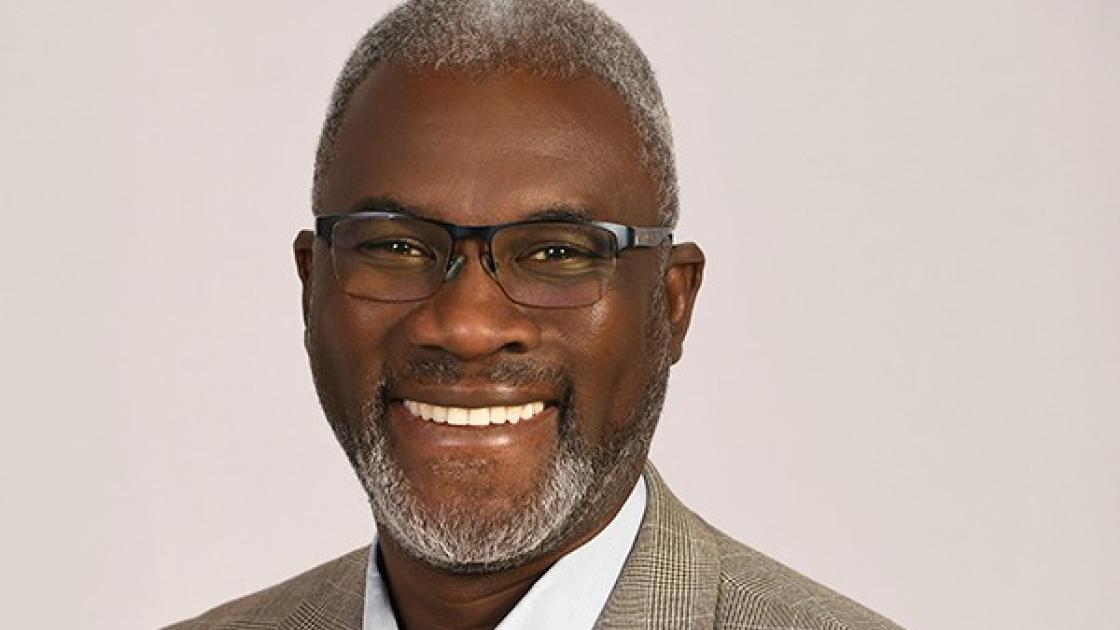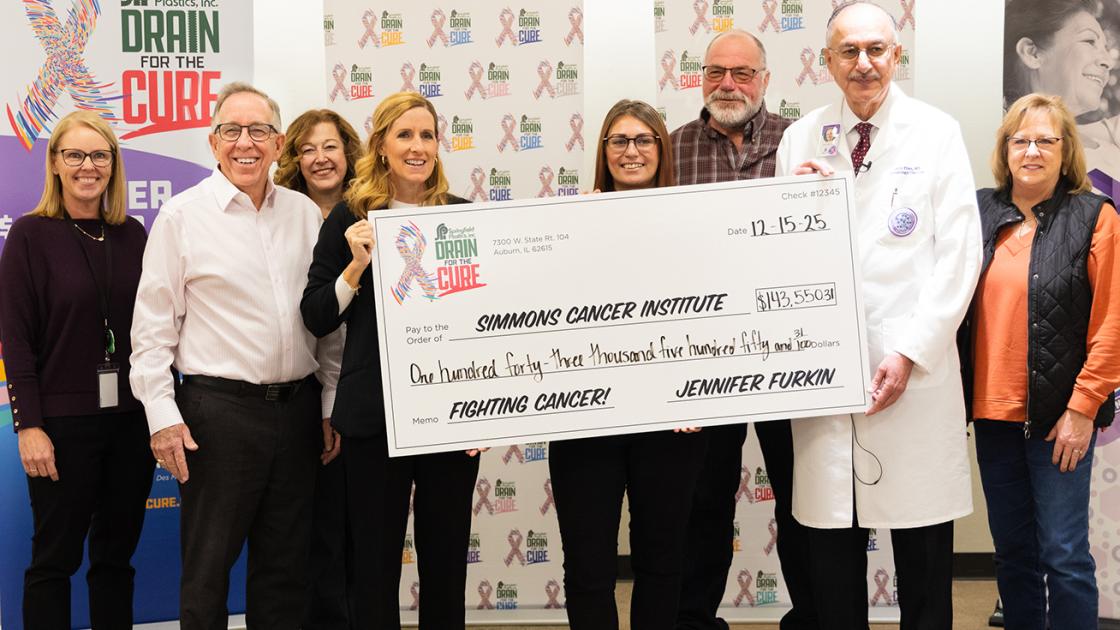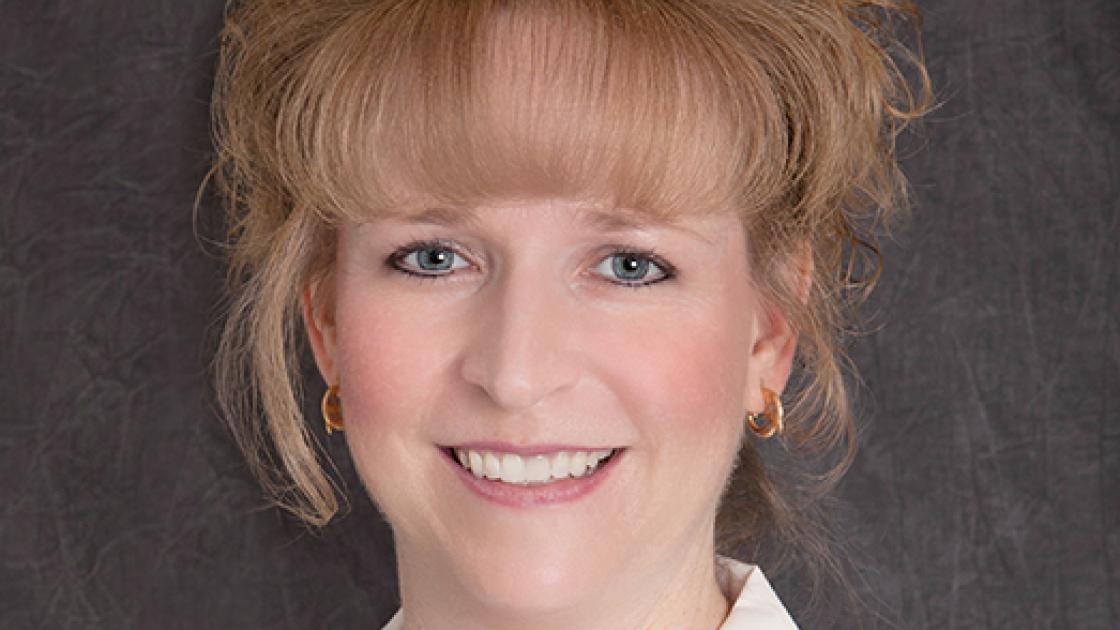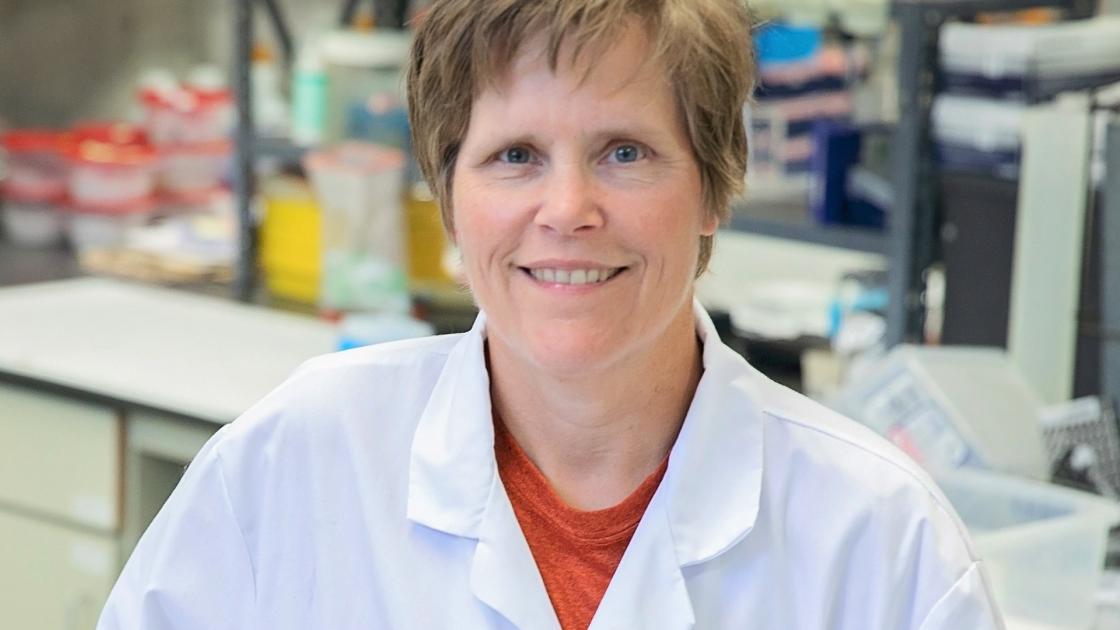
The circadian codebreaker
Champion of Research, Shelley Tischkau
SIU Medicine scientist wants to open our eyes to the effects of disrupted sleep
We all know the negative consequences we carry into the day after a poor night’s sleep: brain fog, reduced productivity, impaired decision-making, increased irritability, persistent fatigue, increased appetite and cravings for unhealthy foods, slower reaction times, weakened immune response and increased pain sensitivity. Trying to remedy sluggishness through coffee consumption or turning in earlier the following evening can provide short-term relief. But the damage has been done.
Shelley Tischkau, PhD, has spent her career as a sleep detective, meticulously piecing together the intricate relationship between our internal clocks and overall health. Her research focuses on circadian rhythms—the biological processes that follow a 24-hour cycle.
Disruptions to these rhythms can throw the body out of sync, increasing the risk of a wide range of health problems, especially those related to metabolism and brain health.
Tischkau’s research aims to fully understand the biological mechanisms behind these disruptions, offering new insight into how our environment and work schedules shape long-term health.
Decoding the clock
Tischkau is a professor and chair of the Departments of Pharmacology and Medical Microbiology, Immunology and Cell Biology (MMICB) at SIU School of Medicine. Her lab received a $450,000 grant from the National Institutes of Health (NIH) to study the aryl hydrocarbon receptor (AhR), a protein found in tissues throughout the body that acts as an environmental sensor involved in detoxification, immune function and development. The research examines how AhR interacts with the circadian clock to influence metabolic health and disease risk. It was renewed in 2024 for an additional $450,000.
“Dr. Tischkau’s research on the aryl hydrocarbon receptor has far-reaching effects,” explains Brandon Cox, PhD, professor and director of the Multidisciplinary Biomedical & Biological Sciences Graduate Program, who works closely with Tischkau as a fellow professor and researcher. “Her findings will impact patients with obesity, diabetes, Alzheimer’s disease, cancer and those who do shift work. In addition, she is an excellent teacher and mentor to our students and faculty.”
“Our goal is to understand how we can target the AhR protein to reset or fine-tune the body’s internal clock. If we can develop therapies that keep our internal clocks functioning better, we may be able to improve how the body processes food, regulates energy and responds to metabolic stress,” Tischkau explained.
Chronic poor sleep negatively impacts metabolism, the cardiovascular system, immune system, nervous system and mental health. In a look beyond drug therapies, Tischkau considers how lifestyle choices, particularly eating patterns, affect the body’s internal clock. Her team is studying how strategies like intermittent fasting or timed eating may help realign circadian rhythms and improve metabolic health.
For example, eating larger meals earlier in the day and lighter meals at night provide better support for the body’s natural cycles.
She is also an advocate for exercise to maintain a healthy internal clock and applies it in her own life as a competitive tennis and pickleball player. A competitive athlete from the age of 8, she has played for more than 25 years in the United States Tennis Association, earning state and sectional titles and several appearances at Amateur National Championships. More recently, she has started competing in pickleball, and will compete this summer at the National Senior Games.
In addition, her research explores how biological sex affects rhythmic processes. “Women and men may respond differently to treatments that metabolism and brain health,” Tischkau explains, “Understanding these differences could help us develop more personalized, effective therapies.”
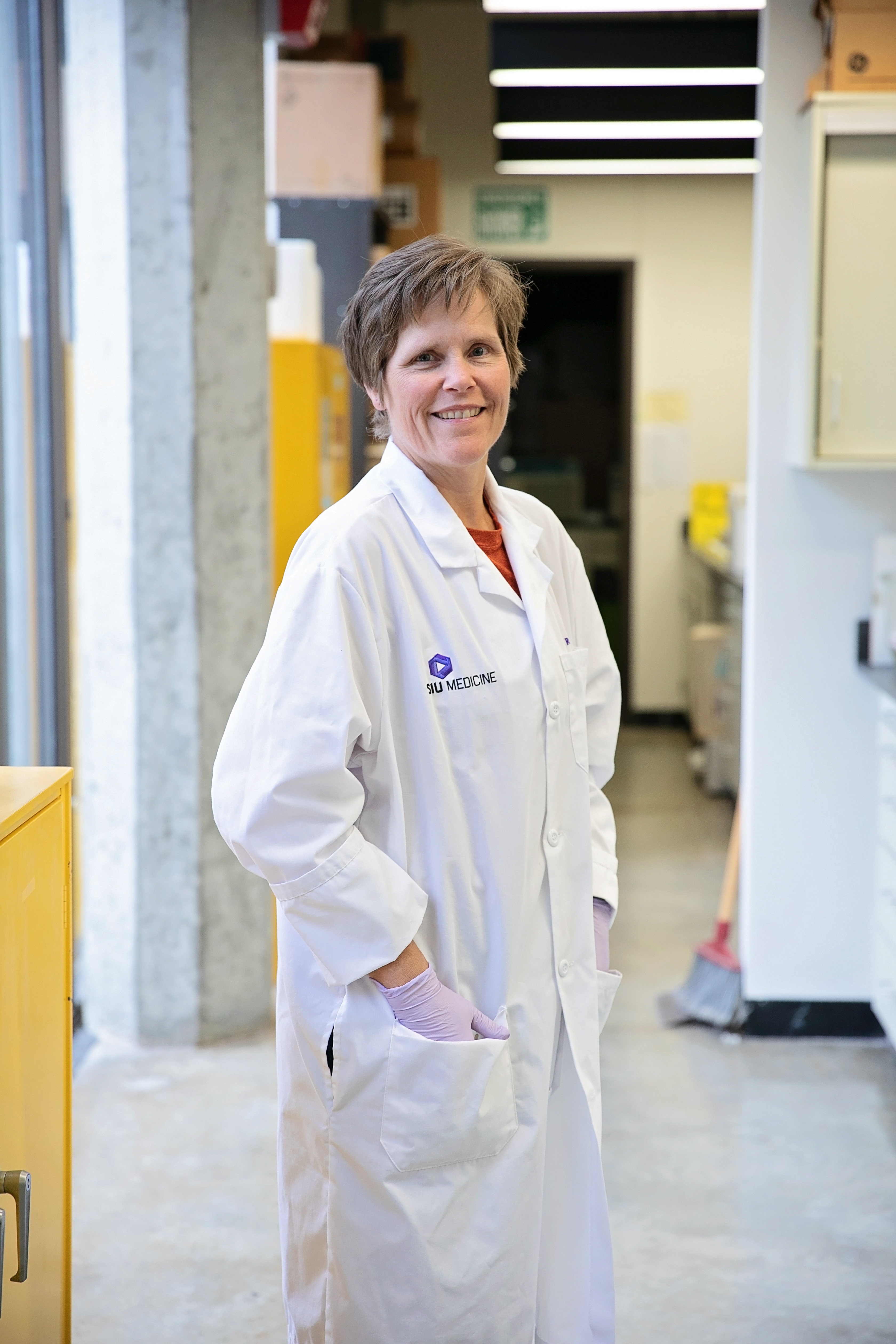 Tackling problems, nurturing scientists
Tackling problems, nurturing scientists
Tischkau grew in a community-minded family of small business owners and educators in Farmersville, Illinois (pop. 700). She developed her inherent curiosity under the hood of a car in her dad’s mechanic shop, but her love for science and fixing things led her towards biology and health care. In college, she realized she preferred problem-solving to patient care.
She earned a PhD in molecular and integrative physiology at the University of Illinois at Urbana-Champaign and joined SIU School of Medicine in 2007. In the midst of the COVID pandemic in 2020, she was appointed to chair two of the largest science departments at the medical school.
With a robust lab schedule, Tischkau remains deeply committed to mentoring the next generation of scientists. Her ability to balance multiple roles and responsibilities makes her a valuable asset to the institution.
“To me, the relationships in the lab are just as important as the projects,” she said. “Students are the next generation of scientists. They’re developing their critical thinking and technical research skills, and they need a positive and supportive environment to grow.”
Andrea Braundmeier-Fleming, PhD, associate professor of Medical Microbiology, Immunology and Cell Biology sees the chair as a leader with SIU’s learners. “Shelley is a phenomenal researcher and educator because she applies her curiosity and critical thinking skills to understand the ‘why’ of everything. She has a passion for knowledge and sharing that knowledge. Her enthusiasm makes learning exciting.”
While other programs dictate research design and focus, Tischkau encourages student input to guide the collective lab work. Jesse Britz, a former PhD student on her team, designed his research to tackle a big question that interested him: How does the body’s internal clock affect Alzheimer’s disease? His experiments mimicked chronic jet lag. He discovered male animals with Alzheimer’s got much worse when their sleep-wake cycles were disrupted. Females, on the other hand, were less affected, pointing to the need for sex-specific approaches to research and treatment for patients exhibiting Alzheimer’s symptoms. Britz’s results led to a focus on sex-specific approaches to Alzheimer’s research in SIU labs. He continues his research on Alzheimer’s disease today as the diagnostic medical science liaison for the division of neurology at Eisai US.
The best rest
“Research is about finding innovative solutions,” Tischkau said. “I found a home at SIU that allowed me to pursue the science I wanted and to teach the next generation. Being able to give back to the people and the students in central and southern Illinois is very important to me,” she said.
Her enthusiasm for research blends the personal with the professional, with a commitment to improving human health and wellbeing through a better understanding of our natural rhythms.
“It’s normal to lose some sleep over an important, occasional worry,” she said. “But learning how to overcome these problems before they lead to health risks would be really beneficial.”
These insights into human R&R could lead to tangible worldwide benefits in health and productivity. Perhaps even in difficult times, we could all rest a little easier.

